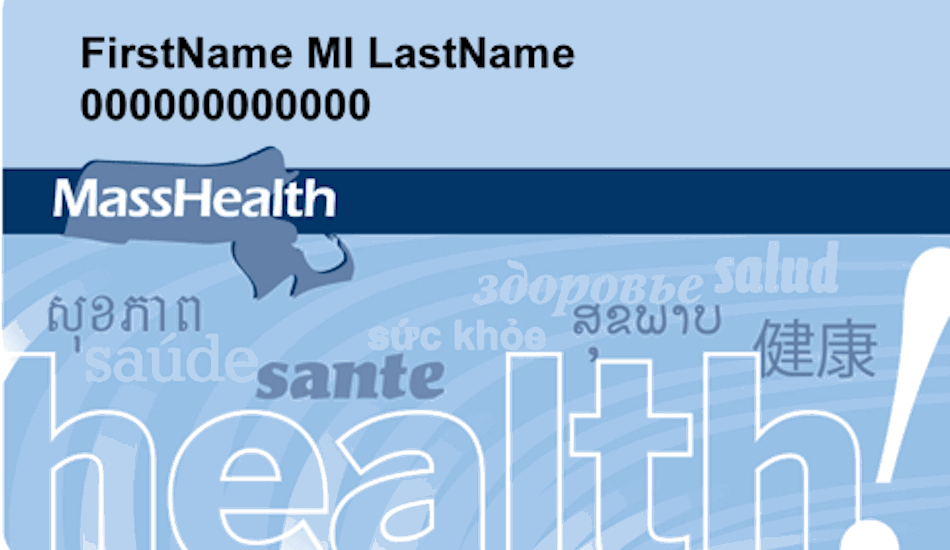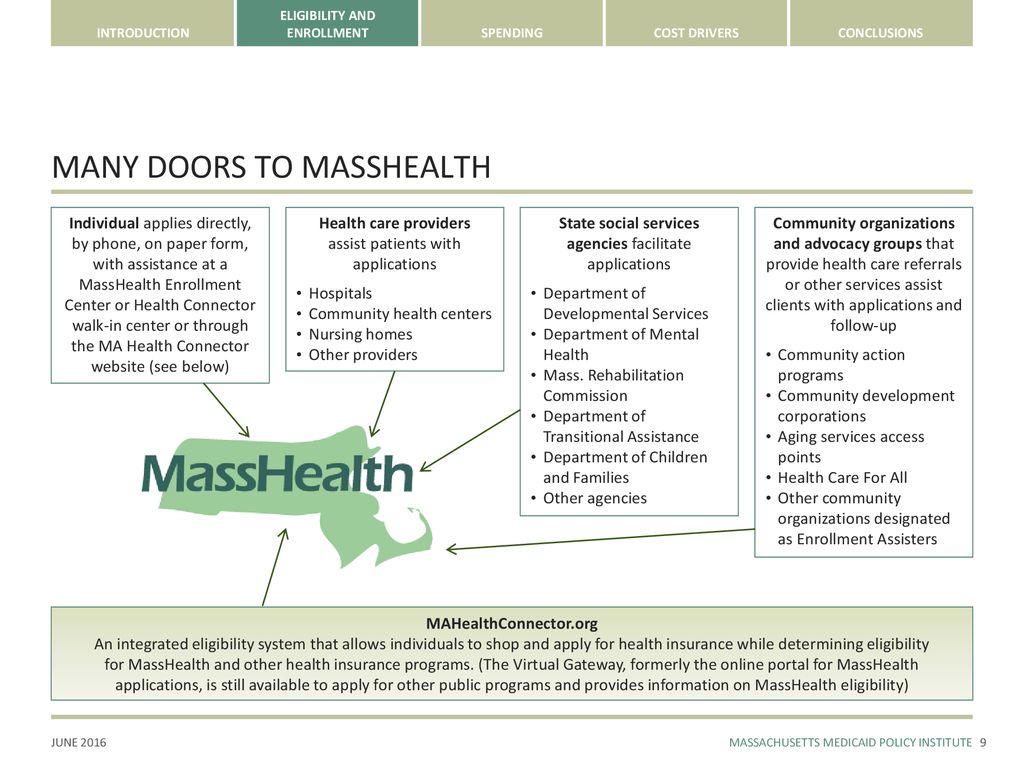Diving into the realm of MassHealth, this introduction sets the stage for a detailed exploration of this vital healthcare program. From its importance to the services it offers, readers will gain valuable insights into the world of MassHealth.
Subsequent paragraphs will delve into the various aspects of MassHealth, shedding light on its coverage, eligibility criteria, enrollment process, and more.
Overview of MassHealth
MassHealth is a state-sponsored healthcare program in Massachusetts that provides comprehensive health coverage to eligible residents. It plays a crucial role in ensuring access to healthcare services for individuals and families who may not have the means to afford private insurance.
Purpose and Beneficiaries
MassHealth serves low-income individuals, families, pregnant women, children, elderly, and people with disabilities. The primary goal is to provide affordable health insurance coverage to those who qualify, ensuring they have access to essential medical services, including doctor visits, hospital care, prescription drugs, and preventive care.
Key Features and Benefits
- Income-Based Eligibility: MassHealth eligibility is determined based on income levels, making it accessible to those with limited financial resources.
- Comprehensive Coverage: The program offers a wide range of health services, including preventive care, mental health services, dental care, and rehabilitation services.
- Cost-Sharing Options: MassHealth provides different cost-sharing options to ensure that beneficiaries can access care without facing financial hardship.
- Care Coordination: Beneficiaries have access to care coordination services to help them navigate the healthcare system and receive appropriate care.
MassHealth Coverage

MassHealth offers different types of coverage to ensure that individuals and families have access to essential healthcare services. Let's explore the various coverage options provided by MassHealth and compare them to understand the benefits and differences.
Types of Coverage
- Standard Coverage: This includes services like doctor visits, hospital stays, prescription medications, and preventive care.
- CommonHealth Coverage: Designed for individuals with disabilities who do not qualify for other MassHealth programs but still need healthcare coverage.
- CarePlus: A program that offers additional benefits to members with complex healthcare needs, such as care coordination and support services.
Comparison of Coverage Options
- Standard Coverage: Provides comprehensive healthcare services for a wide range of medical needs.
- CommonHealth Coverage: Specifically tailored for individuals with disabilities to address their unique healthcare requirements.
- CarePlus: Offers enhanced benefits and support for members with complex healthcare conditions to ensure they receive the necessary care.
Services Covered by MassHealth
- Primary care visits
- Specialist consultations
- Hospitalization
- Prescription medications
- Mental health services
- Rehabilitative services
Eligibility for MassHealth
To qualify for MassHealth, individuals must meet specific criteria related to income, residency, and other factors. Below, we Artikel the eligibility requirements and considerations for MassHealth coverage.
Income Requirements
- Income limits are determined based on the Federal Poverty Level (FPL) guidelines.
- Household size and composition are taken into account when assessing income eligibility.
- Some MassHealth programs have higher income limits for certain populations, such as children, pregnant women, and individuals with disabilities.
- Applicants may be required to provide proof of income, such as pay stubs or tax returns.
Residency and Citizenship
- Applicants must be residents of Massachusetts to qualify for MassHealth.
- Proof of residency, such as a driver's license or utility bill, may be required during the application process.
- U.S. citizens, legal immigrants, and certain non-citizens with specific immigration statuses are eligible for MassHealth.
Special Considerations
- Individuals who are pregnant, children, elderly, or disabled may have different eligibility criteria and pathways to coverage.
- Some categories of individuals, such as those receiving Supplemental Security Income (SSI) or Transitional Aid to Families with Dependent Children (TAFDC), may automatically qualify for MassHealth.
- Individuals with complex medical needs or chronic conditions may qualify for specialized MassHealth programs.
Enrollment Process
Enrolling for MassHealth is a straightforward process that requires certain documentation and attention to deadlines. Below are the steps involved in the enrollment process:
Steps for Enrollment:
- Visit the MassHealth website or a local MassHealth office to start your application.
- Fill out the application form with accurate information about your household and income.
- Submit the required documentation to support your application, such as proof of income, residency, and citizenship.
- Wait for your application to be processed and reviewed by MassHealth.
- Once approved, you will receive your MassHealth coverage details and membership card.
Documentation Needed:
- Proof of income (pay stubs, tax returns, etc.)
- Proof of residency (utility bills, lease agreement, etc.)
- Proof of citizenship or immigration status (passport, green card, etc.)
Deadlines and Key Dates:
It is essential to be aware of the following deadlines and key dates during the enrollment process:
- Application Submission Deadline: Make sure to submit your application within the specified timeframe to avoid delays.
- Annual Renewal Date: MassHealth coverage requires annual renewal, so mark your calendar for the renewal date to ensure continuous coverage.
Closing Summary

In conclusion, this discussion has provided a thorough overview of MassHealth, highlighting its key features and benefits. Whether you're considering enrolling or simply seeking more information, MassHealth plays a crucial role in ensuring access to quality healthcare for many individuals.
FAQ Guide
What are the income requirements for MassHealth?
Income requirements for MassHealth vary depending on the specific program and eligibility category. It's best to check with MassHealth directly or visit their website for detailed information.
Can I apply for MassHealth if I already have insurance?
Yes, you can still apply for MassHealth even if you have other insurance. Your eligibility will be determined based on various factors, so it's recommended to submit an application to find out.
Are dental services covered under MassHealth?
Yes, MassHealth does provide coverage for dental services, including preventive care, basic procedures, and more. Be sure to check the specific details of your coverage.














